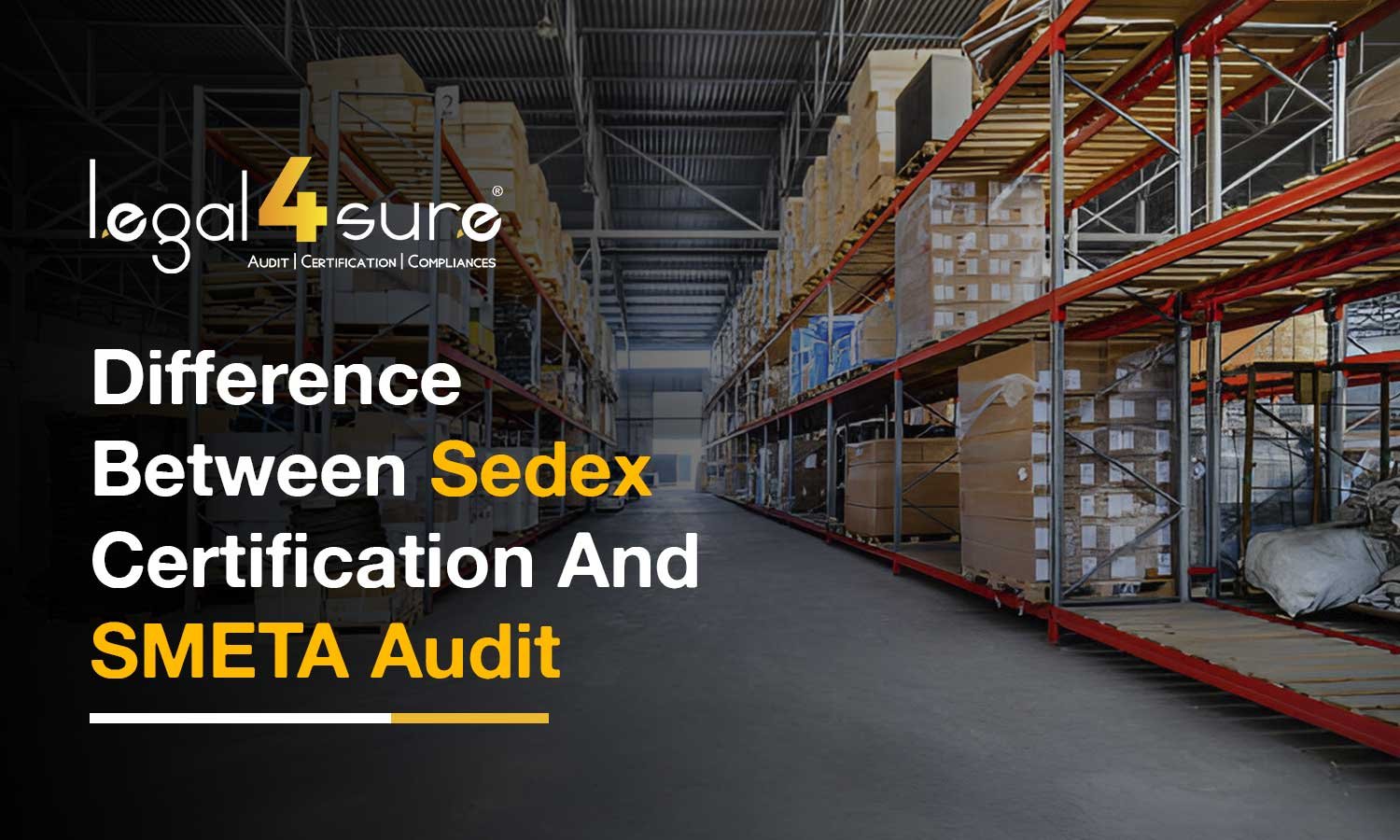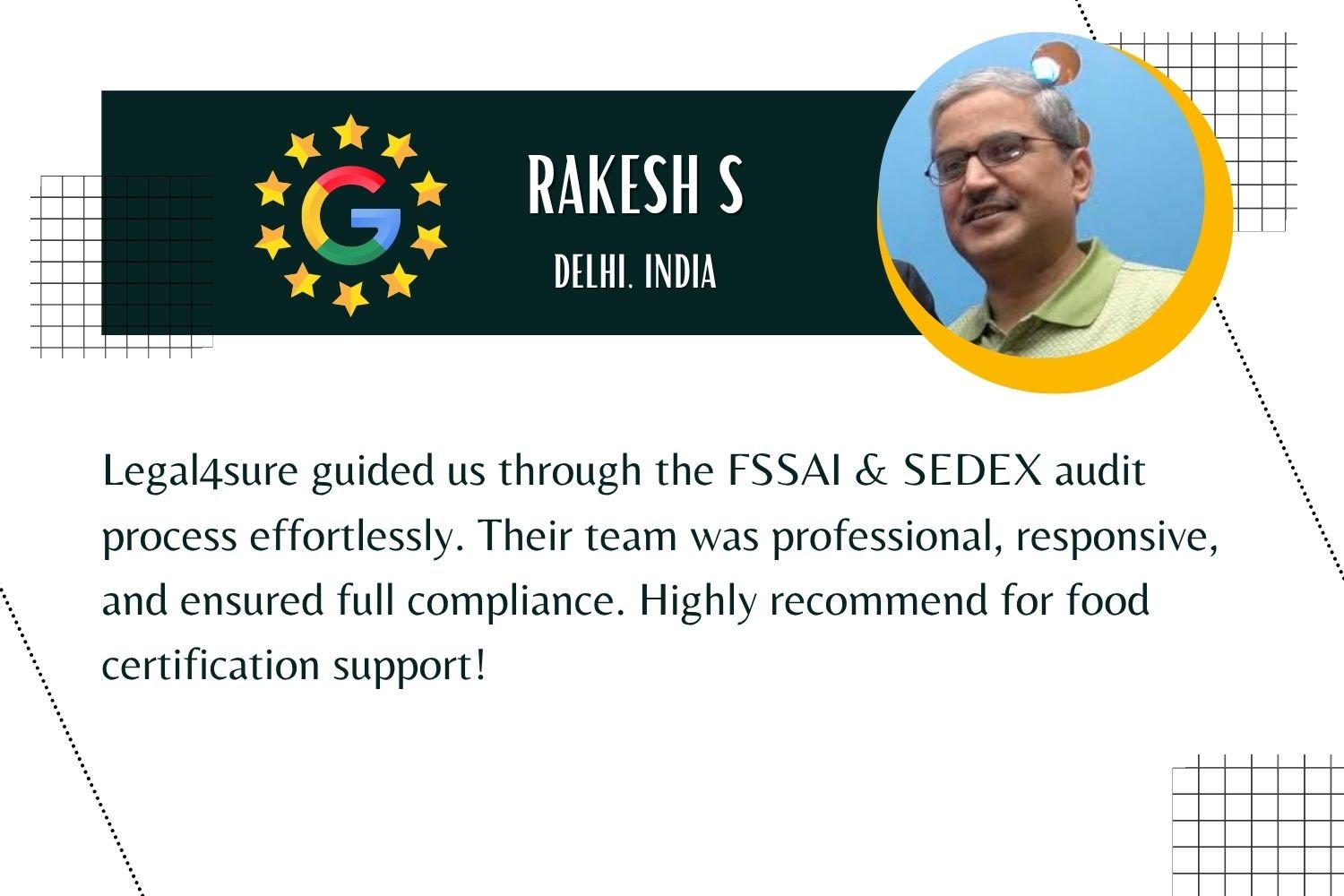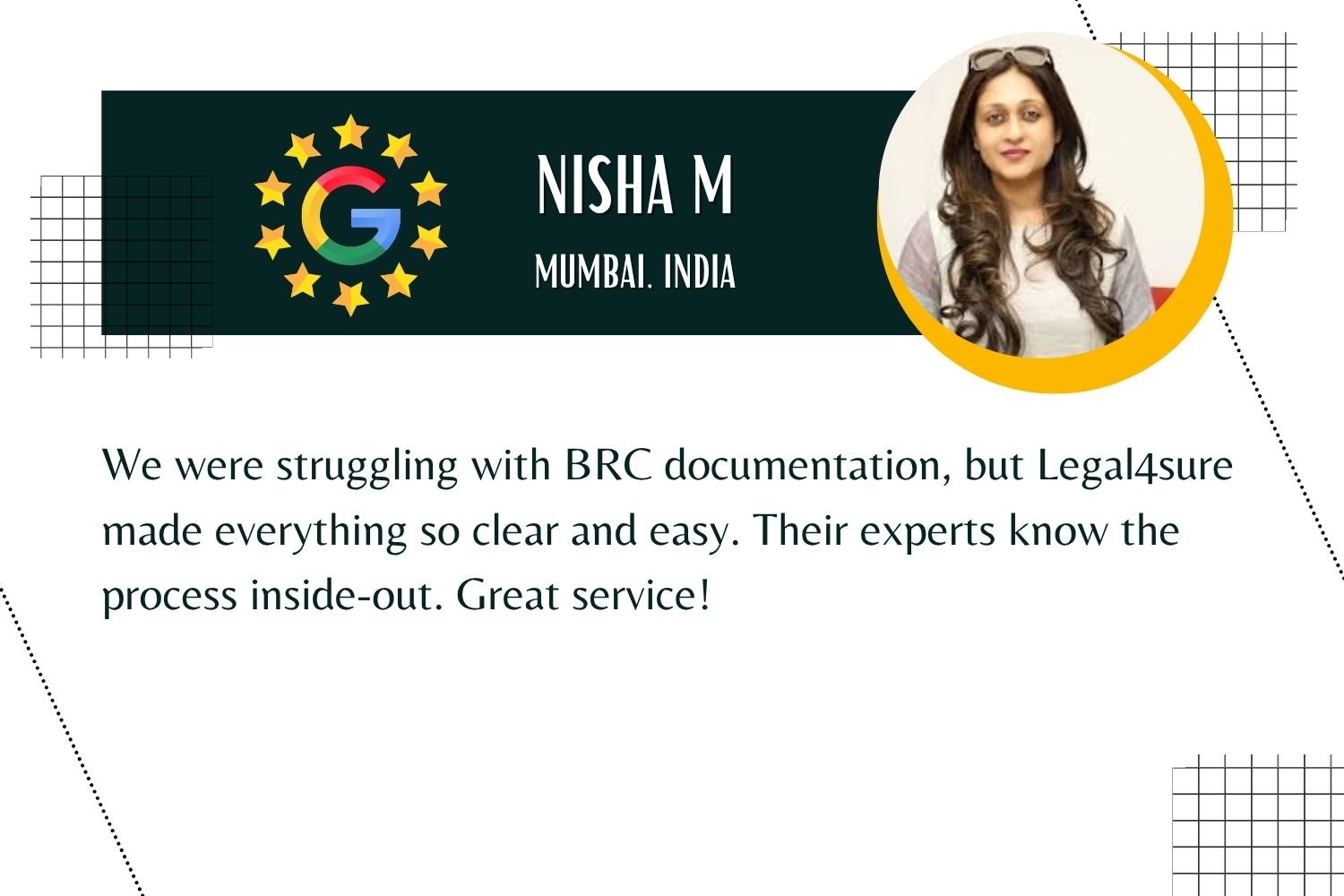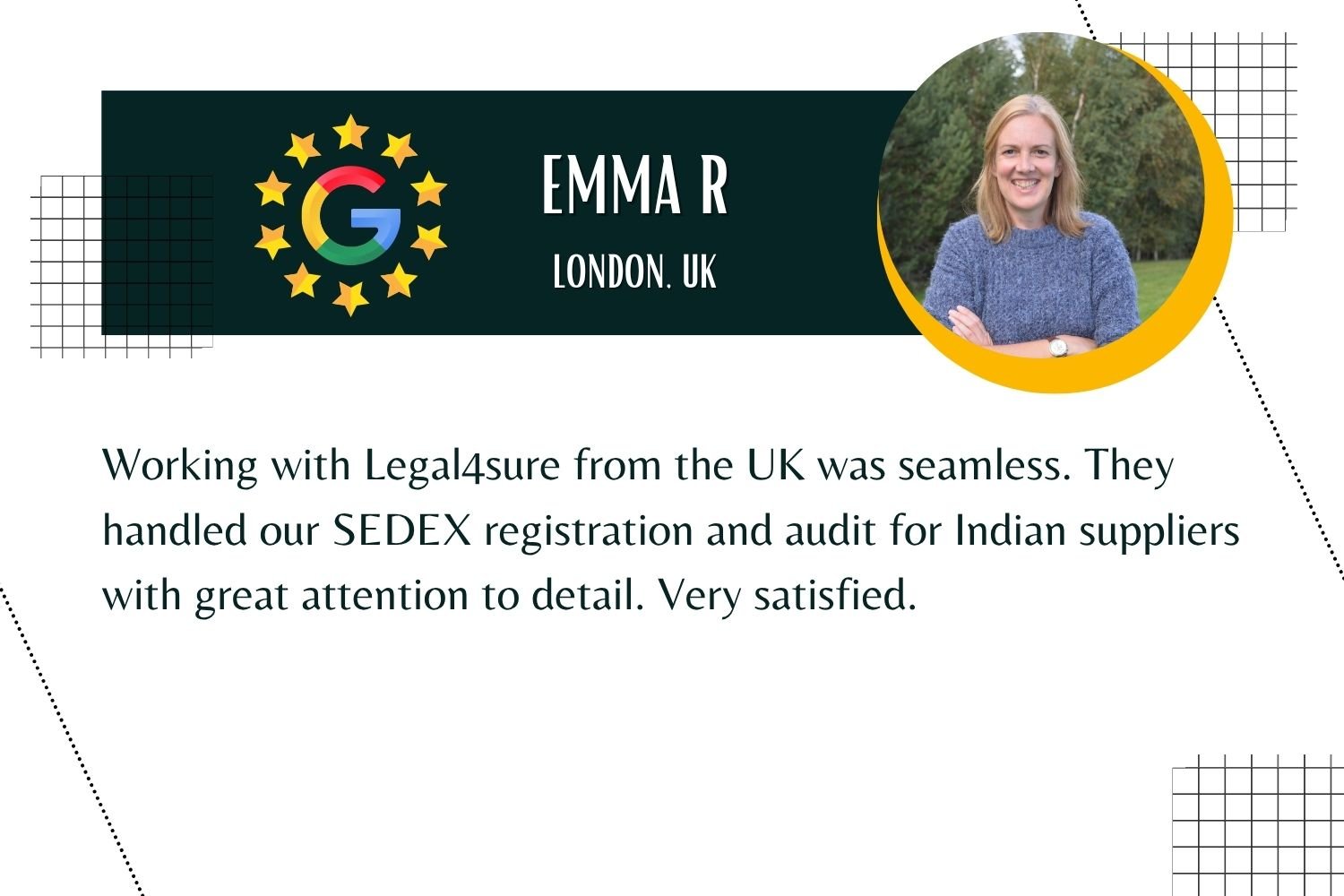In the sphere of ethical standards in management and business, Sedex certification and SMETA audit maintain critical positions in making certain that businesses meet proper standards in supply chain management. Even though both are useful for ethical promotion, they are not the same and work differently regarding businesses. In this blog, you will get an insight into some of the key features, processes, advantages, and key differences between SMETA Audit and Sedex Certification.
What is Sedex?
Sedex (Supplier Ethical Data Exchange) is an independent non-profit organization that focuses on developing ethical standards for business relationships in supply chains. It provides a platform for companies to share information on suppliers’ conduct in areas such as labor relations, health and safety, environmental management, and corporate governance.
What is Sedex Certification?
Sedex Certification refers to a qualification whereby a firm has been accredited to meet certain ethical compliance standards prescribed by Sedex. It shows that a company is committed to best practices in sourcing and business operations.
1. Purpose: For that reason, Sedex Certification’s core purpose is to prove that a company adheres to the rules of conduct upheld by Sedex to improve its image and authority in the market.
2. Process: Companies that wish to obtain Sedex Certification have to go through a systematic assessment, during which they may have to undertake a Sedex audit.
Read more:- Sedex Certification in India: Complete Guide for SMETA Audits (2026)
What is a SMETA Audit?
The SMETA audit has an auditing methodology created by Sedex to measure the conduct standards of suppliers. This format is considered to be one of the most-used ethical audit formats throughout the world.
1. Purpose: Mainly it was designed to assess the labor standards, health, and safety, environmental management, and business ethics in any firm or at the supplier premise.

Types of SMETA Audits
- Sedex 2 Pillar Audit: Largely covers labor rights and health and safety.
- Sedex 4 Pillar Audit: These are employment and remuneration, health and safety, environment and social responsibility, and business conduct.
Key Differences Sedex Certification and SMETA Audit
1. Purpose
- Sedex Certification: Intended to offer assurance that a business has complied with standard and appropriate conduct in procurement.
- SMETA Audit: Centred at on promoting awareness of improvements to labor standards, health and safety, environment, and business ethics.
2. Process
Sedex Certification Process(sedex audit checklist)
- Sedex simply requires companies to sign up with it.
- They conduct a Sedex audit, and this audit may be done by an approved auditor.
- After passing the audit successfully, firms get their recognition, which is called Sedex certification.
SMETA Audit Process
- Conducted by trained auditors who follow established guidelines.
- The audit leads to the preparation of a report that notes the organization’s level of ethical compliance.
- Through the Sedex platform, companies can share the audit results with several customers at a time.
3. Scope
- Sedex Certification: Incorporates general practices regarding organizational ethical standards as set by Sedex with many aspects of day-to-day business.
- SMETA Audit: Assesses labor standards (in the Sedex 2 Pillar and Sedex 4 Pillar evaluations) as well as the additional aspects of environment and business integrity addressed during the Sedex 4 Pillar audit.
4. Frequency
- Sedex Certification: Concerning the validity there is no standard time limit, but it seems that re-testing can be demanded by customers or changes in regulations.
- SMETA Audit: They normally occur once or twice a year depending on customers’ needs or organizational policies.
5. Reporting
- Sedex Certification Reporting: Companies are issued with a certificate they display showing their compliance level.
- SMETA Audit Reporting: Results in a detailed report (the SMETA report) that includes findings and corrective action plans (CAPR) for improvement.
6. Flexibility in Compliance
- Sedex certification is slightly flexible since organizations can input data without the need for a review. This is valuable for companies in a stage of their ethical transition or those that endeavor to show even minimal levels of openness.
- The SMETA audit means that your company will have to pass a very strict third-party check. It is slightly tougher than the Sedex registration process but gives better credibility to stakeholders that a company is conducting business ethically.
Benefits of Sedex Certification
➔ Supply Chain Transparency: Provides a platform for companies to share and access supply chain data.
➔ Market Recognition: Boosts credibility by showing a company’s commitment to ethical practices.
➔ No Mandatory Audit: Companies can obtain Sedex registration without an audit, offering more flexibility.
➔ Customizable Pillar Audits: Companies can opt for either Sedex 2 Pillar or Sedex 4 Pillar audits based on their needs.
Read More: Benefits Of SEDEX Certification
Benefits SMETA Audit
➔ Third-Party Verification: Offers external validation of a company’s compliance with ethical standards.
➔ Comprehensive Assessment: The audit covers labor, health & safety, environmental, and business ethics aspects.
➔ Widely Recognized: SMETA audit is recognized by large corporations and provide companies with a trusted certification of compliance.
➔ Detailed Reporting: The audit offers actionable insights for companies to improve their ethical practices.
Lead in Ethical Sourcing with SMETA and Sedex
In summary, both SMETA Audit and Sedex Certification are essential for responsible business practices, each playing a distinct role in ethical sourcing. Pursuing certification while regularly conducting audits helps organizations maintain compliance, build trust with stakeholders, and strengthen their sustainability journey. With extensive experience in SMETA Audit and Sedex Certification, Legal4sure ensures your path to certification is smooth, efficient, and sets your organization at the forefront of corporate social responsibility. Start your SEDEX certification journey today and secure your place as a trusted, globally responsible business.
FAQ
1. Are Sedex and SMETA the same?
No, Sedex is the platform, while SMETA is the audit methodology used on it.
2. How much does a SMETA audit cost?
A SMETA audit usually costs ₹40,000–₹2,00,000 depending on size and scope.
3. What does SMETA-certified mean?
It means your facility passed a SMETA ethical audit and meets required standards.
4. How much does Sedex certification cost?
Sedex membership typically starts around ₹15,000–₹40,000 per year.
5. How to become a SMETA auditor?
You must complete auditor training, gain experience, and qualify through an accredited body.
6. Who needs Sedex certification?
Suppliers selling to global brands that require ethical and social compliance.
7. What are the 4 pillars of SMETA audit?
Labour Standards, Health & Safety, Environment, and Business Ethics.
8. What are the 4 types of audit in SMETA context?
2-pillar, 4-pillar, announced, and unannounced audits.













